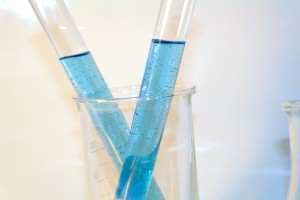According to a recent article from Military Times, the United States Department of Defense (DOD) is testing whether giving soldiers testosterone hormone can help them in terms of strength and mental acuity during extended deployments in a combat theater. While soldiers have look joked that the military was secretly putting testosterone in their food, this is an actual publicly announced study.
 One of the problems faced by soldiers on long deployments and field operations, among many, is that they are not able to eat normal meals on a regular basis. They are regularly forced to skip meals and survive on meals ready to eat (MREs). This results in them eating an average of 60 percent less calories than they actually require on a daily basis. This is leading to problems such as muscle loss, issues with cognitive functions such as loss of concentration, and an increase in the number of mistakes made, and many other similar issues. While the modern military includes brave women as well as men, in the case of men, military doctors have learned that these rough conditions are resulting a lower level of testosterone than prior to their deployment. The military is concerned that this drop in testosterone levels is making soldiers more prone to injury and illness when in the field.
One of the problems faced by soldiers on long deployments and field operations, among many, is that they are not able to eat normal meals on a regular basis. They are regularly forced to skip meals and survive on meals ready to eat (MREs). This results in them eating an average of 60 percent less calories than they actually require on a daily basis. This is leading to problems such as muscle loss, issues with cognitive functions such as loss of concentration, and an increase in the number of mistakes made, and many other similar issues. While the modern military includes brave women as well as men, in the case of men, military doctors have learned that these rough conditions are resulting a lower level of testosterone than prior to their deployment. The military is concerned that this drop in testosterone levels is making soldiers more prone to injury and illness when in the field.
It should be noted than we talk about soldiers in the field, were are generally talking about relatively young men. We are not talking about men over 60 with lower levels of testosterone who are the target of they seemingly endless stream of ads for testosterone replacement therapy (TRT). As our Boston testosterone therapy injury attorneys have seen, there has been little scientific evidence if any that testosterone hormone does anything to help these older men with allegedly lower testosterone levels, but there is definitive evidence that taking testosterone therapy drugs can result in an increased risk for heart attacks and stroke.
In the case of the military study, the experiments are being conducting in connection with researchers from Louisiana State University’s Pennington Biomedical Research Facility, as well as the United States Army Research Institute of Environmental Medicine (USARIEM). The study is being conducting with men of military service age who are on calorie-restricted diets in order to replicate the conditions of combat to the greatest extent possible.
The researchers will perform a number of tests to see if they have any issues with brain function, fatigue, and other related conditions. In the first round of the study, there will be 50 male patients who are between the ages of 18 and 39. The study is an outpatient study, meaning they will not have to stay at the study facility, but they will be given all they food they are allowed to consume, and they will have monitors checking on the study participants even when they are not at home.
Once this phase of the study is complete, there will be study participants living at the study facility and given the restricted diet and subjected to a great deal of physical activity to replicate combat conditions.
If you are the victim of Massachusetts product liability, call Jeffrey Glassman Injury Lawyers for a free and confidential appointment — (617) 777-7777.
Additional Resources:
Can testosterone boost combat performance? Pentagon studies hormone’s role in fitness, September 23, 2016, By Patricia Kane, Military Times
More Blog Entries:
J&J Fires Back on Pelvic Mesh Marketing Lawsuit, July 15, 2016, Boston Product Liability Attorney Blog
 Product Liability Lawyer Blog
Product Liability Lawyer Blog

